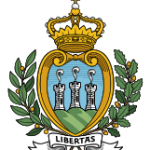As proud as we are of our ‘republican’ constitution in the United States of America, there is a nation out there that has been a republic well before us and has an older constitution. Abraham Lincoln was its honorary citizen. It might be hard to find it on the map even if you know where to look. But it is there. And it’s been there for the last 17 centuries.
The oldest constitutional republic still in existence today is San Marino, an enclave in northeast Italy. Today, a prosperous economy based on banking and tourism, the tiny nation was founded on September 3, 301 by a stonemason on the run from the Roman authorities. Saint Marinus from Rab was a persecuted Christian who sought shelter on Monte Titano. There, he built a monastery and it formed the kernel of the future city.
In 1600, the Sanmarinese ratified their constitution; the world’s oldest and still in effect.
Giuseppe Garibaldi, founder and unifier of the modern Italian nation, allowed little San Marino, the 24 square mile country to preserve its independence.
Even the Papacy and Napoleon left San Marino alone. If we are to believe the legend, this was envisioned by Marinus when he uttered his last words:
“Relinquo vos liberos ab utroque homine.” (“I leave you free from both men”). Of course, in his time, Saint Marinus had in mind the Roman Emperor and the Pope.
WHAT DOES “REPUBLIC” MEAN? …. see the definition below the video of what one republic, the oldest one, looks like.
Hey!
Feel like traveling to San Marino? C’mon.. 5 minutes and you won’t believe the views and the entire story. Snap!
Definition courtesy of Wikipedia. See your local library or the numerous sites on line to explore YOUR government and state of the union further.
A constitutional republic is a state in which the head of state and other officials are representatives of the people and must govern according to existing constitutional law that limits the government’s power over all of its citizens. Because the head of the state is elected, it is a republic and not a monarchy.
In a constitutional republic, executive, legislative, and judicial powers must be separated into distinct branches.
The fact that a constitution exists that limits the government’s power makes the state constitutional.
That the head(s) of state and other officials are chosen by election, rather than inheriting their positions, and that their decisions are subject to judicial review makes the state a republic.
…………….something to think about.

Speak Your Mind